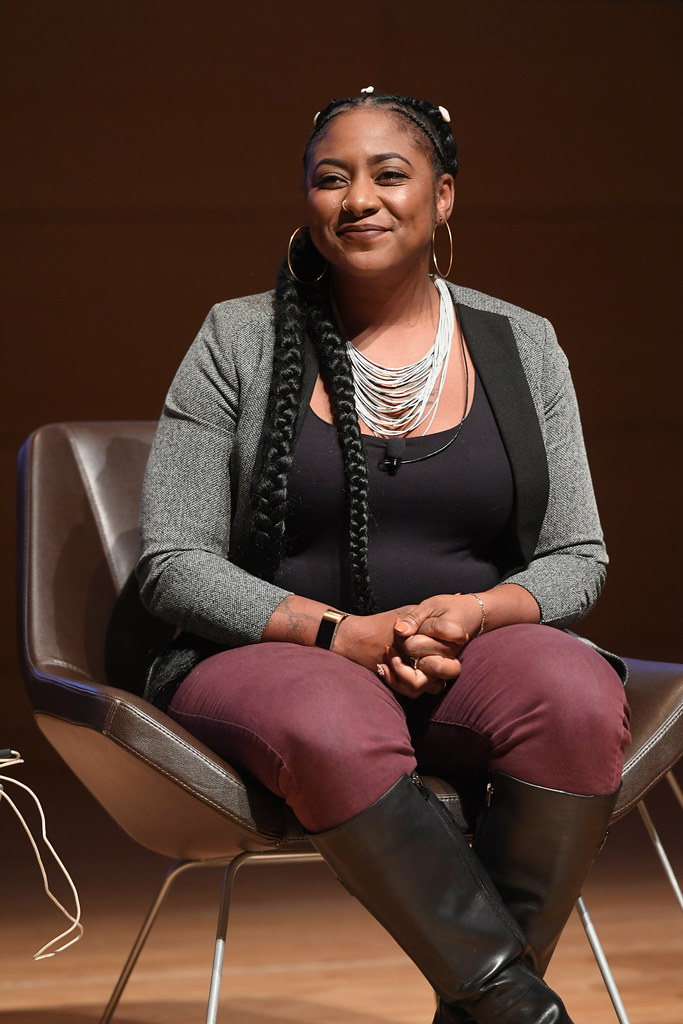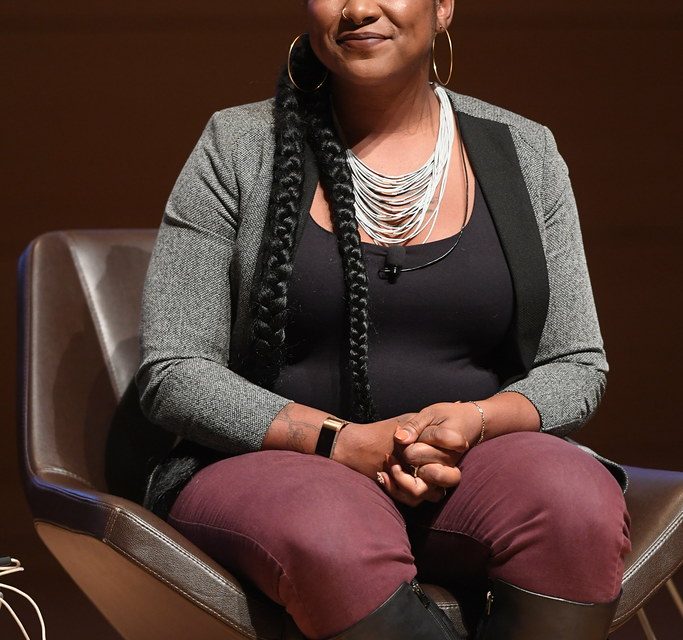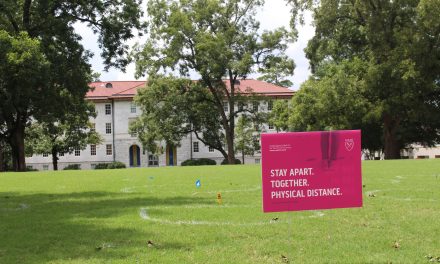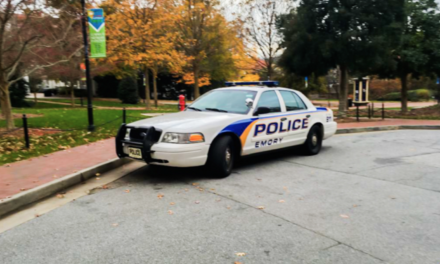Black Lives Matter Co-Founder Alicia Garza spoke about her activism experience and broke down the keys to social justice organization during a conversation hosted by the Office for Racial and Cultural Engagement and College Council on March 17.
The event, the second in a three-part series entitled “Activism and Mobilization: What Anti-Racism Can Look Like,” centered around Garza’s current projects and provided advice for people beginning their activism journey.
Her book, “The Purpose of Power: How We Come Together When We Fall Apart,” provides activists with the guidance she desired as a self-described naive college student interested in social justice.
“The kind of change that we’re trying to make is not just stopping bad things from happening,” Garza said. “We are trying to change the way that power operates, and we are trying to change the balance of power so that we have more choice, and we have more options, and we have more access to the things that we need to live well.”
In addition to clearly defining their objectives, Garza recommended that activist leaders find like-minded individuals to help build community around a movement. Meaningful activism can be a lengthy and arduous process and it is crucial for activists to keep one another motivated when progress slows, Garza emphasized.
“Figure out what it is that you care about, find other people who care about those same things and join them,” Garza said. “One thing that I think is a big barrier to staying inside of social change work is cynicism and despair. It is very easy to get disappointed or frustrated with the pace of change.”

Black Lives Matter Co-Founder Alicia Garza./Courtesy of Trebor Scholz, Creative Commons
While Garza admitted that focusing on destroying current policies can be a surefire way to “galvanize” people around an issue, the momentum often dies out quickly. She suggested leaders mobilize movements around building a better future rather than reacting to a broken present.
“It is so easy for us to get caught up in slicing with the tiniest scalpels — all of the things that don’t work — but it’s a lot harder to start to talk about how it should work instead,” Garza said. “You engage [people] in the fight because they’re fighting for something, they’re not just fighting against something.”
Garza encouraged the audience to embrace the “messiness” of activism and be forgiving towards others when mistakes occur since change is never a seamless, linear process.
“It’s inevitable that somebody is going to disappoint you, that you’re going to make a mistake,” Garza said. “The number one thing that is important in terms of sustaining social movements and building power over the long haul is being able to move through that, understanding that there is no perfect place but that the way we make it more perfect is by continuing to engage in it.”
Garza currently holds leadership roles in several social justice initiatives: she spearheaded the Black Futures Lab, works closely with the Young Women’s Freedom Center, hosts the “Lady Don’t Take No” podcast and is preparing to launch a YouTube channel. She stressed, however, that failure is a necessary part of building a career around activism — especially racial justice — and warned the audience not to “collapse” at their first misstep.
“If you’re too afraid to mess up, you’re going to be too afraid to do big things,” Garza said. “Be thinking a lot about how to practice doing it better the next time. Being anti-racist is not just an action, it’s an ongoing commitment, and part of it is about accountability.”
Garza also reflected on how identity shapes activism engagement, arguing that people do not have the ability to “take off” their identity at will. Rather than competing in the “oppression Olympics” to determine which group faces the most obstacles, Garza suggested that people engage in productive discussion about their identities to find common ground.
“Identities are categories that we have been placed in as a way of mapping power,” Garza said. “I need to do the work to get to know you better, and to see you as a full human being, not just the human being that I may want to see you as.”
Addressing the recent shootings in Georgia that left six Asian American women dead, Garza condemned the violent acts and warned against becoming complacent under the Biden-Harris administration. She called on the audience to “keep holding their feet to the fire,” stressing that Black and Asian communities can work together to achieve greater equity and eliminate racially-motivated violence.
“[There] is this tendency that we can have when we’re under attack to go towards just protecting ourselves without thinking about the expense or impact on anybody else,” Garza said. “We have to be cognizant of the fact that our communities have a long history of struggling together and fighting together, and oftentimes that history gets lost, but it’s 100% there.”
Claire Fenton (she/her) (24C) is a Pittsburgh native majoring in quantitive sciences and linguistics. Outside of the Wheel, she is the treasurer of Emory Data Science Club and Girls Who Code. When she’s not training for half marathons, you can find her watching the Penguins dominate the Philadelphia Flyers and reading Agatha Christie novels.







